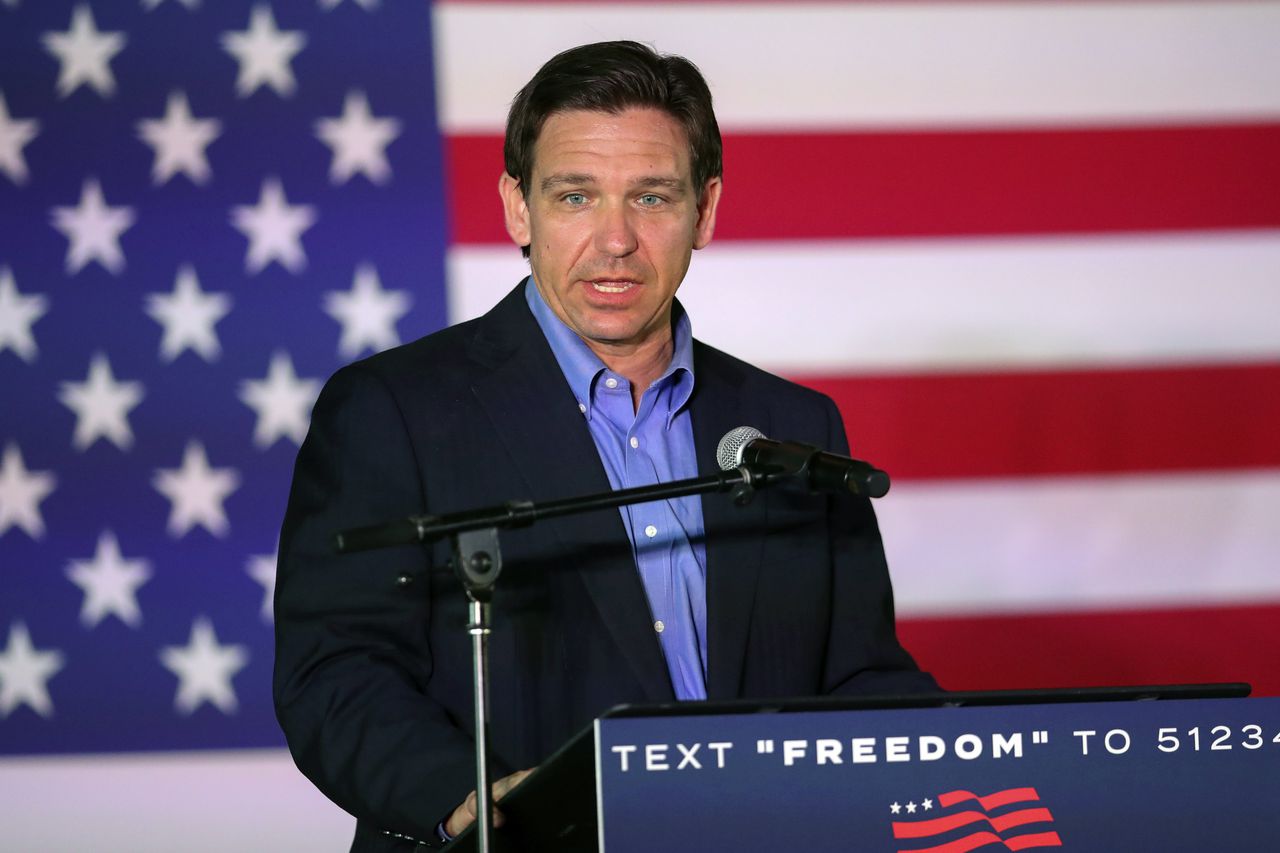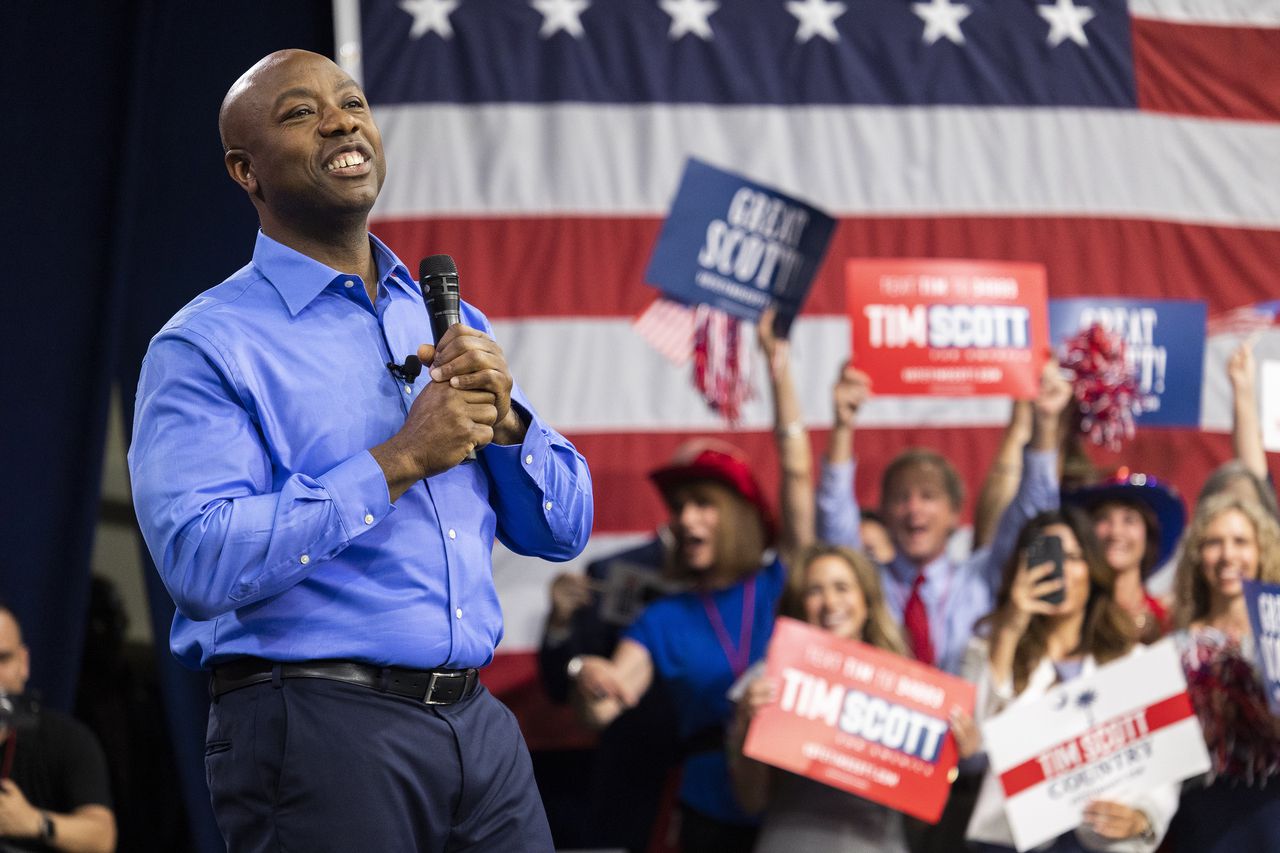‘It’s just too early’ in presidential race that Trump rules in fundraising, polling
Former President Donald Trump rolls into Montgomery for the Alabama state GOP dinner Friday facing federal indictments in three separate cases and a large lead in presidential polling over his Republican rivals.
Trump is outperforming his GOP rivals in fundraising in Alabama, which is no surprise given the ex-president’s strong showings in the deep red state during the primary and general elections of 2016 and 2020.
Related content:
Trump’s $318,324.20 raised through June 30 in Alabama represents 70% of the overall total Republican presidential hopefuls raised in the state during the 2024 election cycle. Florida Gov. Ron DeSantis and South Carolina Senator Tim Scott are vying for second place, according to Federal Election Commission data.
“DeSantis is a nice guy, but Donald has been there,” said Robert Nail of Lillian in Baldwin County, who contributed to Trump’s 2024 campaign. “He knows what to do and will hit the ground running. This nonsense with indictments is just background noise.”
Fundraising storylines
Political pundits in Alabama say it’s simply too early to anoint Trump as the Republican nominee, despite his large polling lead and strong fundraising apparatus.
The FEC data from Alabama illustrates some early storylines in the GOP race, many of which mirror national narratives.
They include:
- Scott, who is trailing badly in most polling, is competing with DeSantis in fundraising and is viewed as an alternative to the Florida governor. Scott is second in Alabama in amassing 915 small dollar contributions, trailing only Trump. Scott’s total amount raised was $57,141.87. While Scott is at 3% in most presidential polls, his stature among the GOP has risen this summer. A June poll released by NBC News showed the number of GOP voters who view Scott as their second choice for president rising from 3% in April to 12%. A recent Fox Business poll shows Scott gaining in Iowa, trailing DeSantis by only 5 percentage points.
- DeSantis is still viewed as the Republican likely to challenge Trump and competed with the former president in polling earlier this year. But the DeSantis campaign has faltered, and he has recently fired about a dozen campaign staffers. That said, DeSantis is still viewed as the most attractive alternative to the former president. In Alabama, his campaign raised $62,344.31 from individual contributions, trailing only Trump.
- Mike Pence, the former vice president, raised only $1.2 million during the first half of the year, creating a worry that he might not have enough donors to qualify for the first GOP debate on August 23. Pence, who only announced his candidacy in June, received one donation in Alabama — $3,300 from former U.S. Air Force officer Mark A. Brown of Prattville.
Political observers say it’s simply too early to come to any conclusions about fundraising on polling.
“From a national perspective, at this point in the election cycle, we thought Herman Cain (in 2011) was the guy,” said Angi Horn, a Montgomery-based GOP strategist referring to the former tea party activist who won several straw polls at the onset of primary campaigning in 2012.
She added, “It’s just too early. Most people are, to be quite honest with you, are worried about getting their kids back to school, the football season and their normal, everyday lives. They are not even watching yet.”
What about Tim Scott?
Republican presidential candidate Tim Scott delivers his speech announcing his candidacy for president of the United States on the campus of Charleston Southern University in North Charleston, S.C., Monday, May 22, 2023. (AP Photo/Mic Smith)
The early political jockeying shows that Scott and DeSantis could be fighting it out for the No. 2 slot behind Trump. Others in the mix include Pence, South Carolina Gov. Nikki Haley, tech entrepreneur Vivek Ramaswamy, and former Texas U.S. Rep. William Hurd.
Former New Jersey Gov. Chris Christie, right-wing political commentator Larry Elder, and former Arkansas Gov. Asa Hutchinson have barely raised any money in Alabama. Other declared candidates are not even on the fundraising: Miami Mayor Francis Suarez, North Dakota Gov. Doug Burgum, Dallas area pastor Ryan Binkley, and businessman Perry Johnson.
Scott, according to some, is poised to be the candidate who can best take advantage of the political stumbles from DeSantis.
“I would say that Senator Scott has a lot of attractive qualities to a Republican primary electorate – a strong track record among Republicans in the ‘first in the South’ primary, is a good fundraiser, has a moderate voting record in the Senate, yet is nevertheless supportive of core MAGA priorities such as a border wall,” said David Hughes, a political science professor at Auburn University in Montgomery.
He added, “As DeSantis struggles to connect with voters on a personal level, Scott is well regarded as a highly personable individual. All these things weigh in his favor.”
Quin Hillyer, a Mobile-based columnist for The Washington Examiner, was one of the first to interview Scott, one-on-one, in 2010. Back then, Scott had defeated the son of the late segregationist Senator Strom Thurmond and was on the path toward Congress.
“Senator Scott has huge potential to emerge, ahead of Ron DeSantis, as the most formidable alternative to Donald Trump for the Republican nomination,” said Hillyer, who praised Scott for his detail-oriented policy chops in a piece he wrote in April.
“He is sincere, his record is solidly conservative, his personality is attraction, and he is a superb public speaker,” Hillyer said. “He’s also politically tough, having bested not one but two Republican dynasties in South Carolina to just reach Congress (and then the Senate) in the first place. And he would be a powerful candidate in the general election against Joe Biden or any other Democrat.”
Scott, though, is not a threat to Trump in polling.
David Mowery, a political consultant in Montgomery, said Scott’s campaign is caught in a bind, saying it’s “either a vanity campaign and a destiny for some future racial contretemps between the parties,” or he’s the first serious Black candidate on the GOP side that is overshadowed by the established or bombastic politicians.
Mowery said Scott “checks all the boxes” and has the potential of being someone the GOP base is happy with as a presidential running mate.
“I just don’t think he has the force of personality to really shine against the former president and DeSantis,” Mowery said.
DeSantis: Best alternative?

FILE – Republican presidential candidate, Florida Gov. Ron DeSantis, speaks during a campaign event, June 2, 2023, in Lexington, S.C. A federal judge temporarily blocked portions of a new Florida law that bans transgender minors from receiving puberty blockers, ruling Tuesday, June 6, that the state has no rational basis for denying patients treatment. (AP Photo/Artie Walker Jr., File)
Victor Biebighauser of Montgomery, and a self-described Ronald Reagan conservative, is supporting DeSantis financially and is backing the Florida governor because he wants to support the best candidate who can defeat Democratic President Joe Biden.
Trump’s legal problems are a concern, Biebighauser said.
“We are better off with someone who has kind of a clean record of accomplishment and someone who is not burdened with multiple indictments,” he said.
Polling shows that other Republicans feel the same way. A recent Reuters/Ipsos poll showed that 45% of Republicans said they would not vote for Trump if he was convicted of a felony crime by a jury. More than 35% said they would.
Another poll shows that an overwhelming number of Republicans do not believe Trump has done anything wrong. A New York Times/Siena poll of 1,329 voters showed that 91% who list Fox News as their primary media source do not believe Trump violated federal law. That poll was conducted before Trump was indicted on federal charges for alleged interference in the certification of the 2020 presidential election.
Soren Jordan, a political science professor at Auburn University, said there remains an “extremely real chance” that Trump would be unable to serve as president if he is elected.
“Anyone has the ability to be the number two or even the number one candidate,” Jordan said. “In 2016, at this point, Jeb Bush was the aggressively stronger frontrunner, both in polling and fundraising. It ultimately did nothing for him.”
Jordan said he does not pay much attention to polling until the calendar year of the election. The Iowa Republican Caucus is set for January 15, 2024.
“Too much can happen between now and then,” he said.
